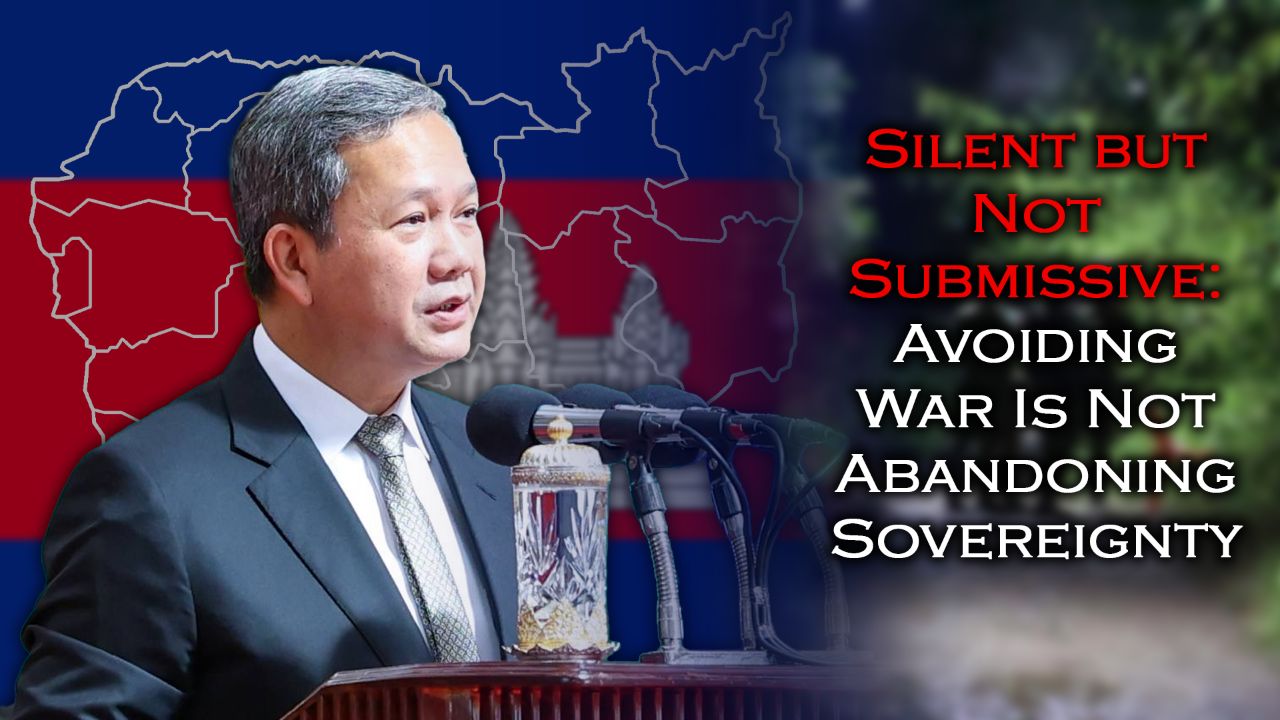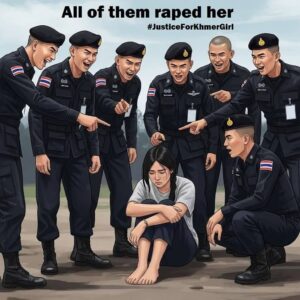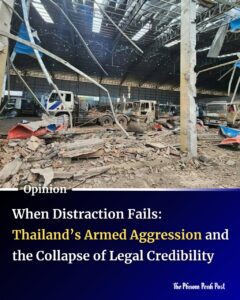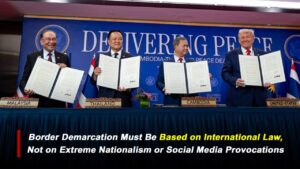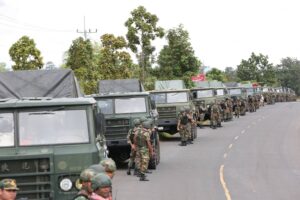Silent but Not Submissive: Avoiding War Is Not Abandoning Sovereignty
In the current political and security context, tensions along the Cambodia–Thailand border remain volatile, with the potential to erupt into armed conflict at any moment, despite the fragile ceasefire agreement reached on July 28, 2025. The path toward a lasting peace agreement also remains uncertain. This situation has sparked public debate and raised questions about the Cambodian government’s leadership, with some critics expressing concern that future peace talks could result in the loss of part of Cambodia’s territory to its neighbor.
However, a closer and more principled analysis shows that the government’s restraint and avoidance of military confrontation are not signs of weakness or fear. Rather, they reflect Cambodia’s commitment to achieving peace through legal and diplomatic means — upholding international law and ensuring the nation’s borders are determined based on recognized treaties and conventions.
This approach demonstrates the political responsibility and strategic wisdom of the Cambodian government — prioritizing national security first while preserving territorial integrity in the long run. It is a path of prudence, not capitulation.
The Ceasefire: A Path to Peace, Not a Threat to Sovereignty
The ceasefire agreement of July 28, 2025, is not a border-defining document nor one that alters Cambodia’s sovereign boundaries. It is a temporary strategic measure aimed at de-escalating military tensions, preventing renewed conflict, and creating a favorable environment for political dialogue, economic restoration, and the resumption of joint border demarcation efforts.
Importantly, the document only outlines operational protocols and codes of conduct between the armed forces of both countries. It contains no clauses related to ceding territory or recognizing any changes in borders — a point that Prime Minister Hun Manet has repeatedly clarified in public addresses and social media statements.
Such armistice arrangements are standard in international diplomacy. Examples include the 1953 Korean Armistice Agreement between North and South Korea, and the 1984 Nkomati Non-Aggression Pact between South Africa and Mozambique — neither of which involved territorial concessions. The purpose of a ceasefire is to stop bloodshed and open the door to political negotiation, not to surrender land or sovereignty.
Peace Does Not Mean Surrender
Under international law, peace cannot be built on territorial concessions. Peace negotiations are not about winners and losers; rather, they are about finding mutually beneficial outcomes for stability and development after conflict. No peace agreement can unilaterally alter a nation’s sovereignty — any such change would require formal approval from the relevant legislative bodies, including the National Assembly and Senate, as stipulated by law.
The demarcation of borders, meanwhile, can only be conducted through legal frameworks, treaties, and technical processes recognized by the United Nations and governed by the Cambodia–Thailand Joint Boundary Commission (JBC) — based on the Franco–Siamese Treaties of 1904 and 1907 and reaffirmed in the 2000 Memorandum of Understanding (MOU). Military forces have no authority to determine or alter national borders.
Strategic Patience, Not Silence
Cambodia’s calm response reflects confidence in diplomacy and international law. The government’s silence toward Thai military provocations does not mean passivity or neglect of territorial defense; it signifies adherence to the ceasefire, discipline, and a firm pursuit of peaceful solutions.
In contrast, the Thai military’s recent behavior — staging nationalistic displays and provocative maneuvers — appears aimed at appeasing ultranationalist groups at home and provoking Cambodians into overreaction, potentially creating a pretext for renewed hostilities and justifying expansionist ambitions based on its illegitimate 1:50,000-scale map.
Cambodia, by contrast, believes that peace does not undermine national dignity. The government has made it clear: no ceasefire or peace agreement will ever come at the expense of Cambodia’s sovereignty or territorial integrity.
Thus, maintaining calm in the face of provocation is not a sign of weakness, but a mark of political maturity and civilizational strength. Cambodia seeks peace not through concession or exchange of territory, but through principles of sovereignty, unity, and national honor.
For the Standpoint of Cambodia’s Leadership: Silent but not submissive — avoiding war to build peace.
By: Pin Vichey – Political Science Scholar
Source : asianspeech

